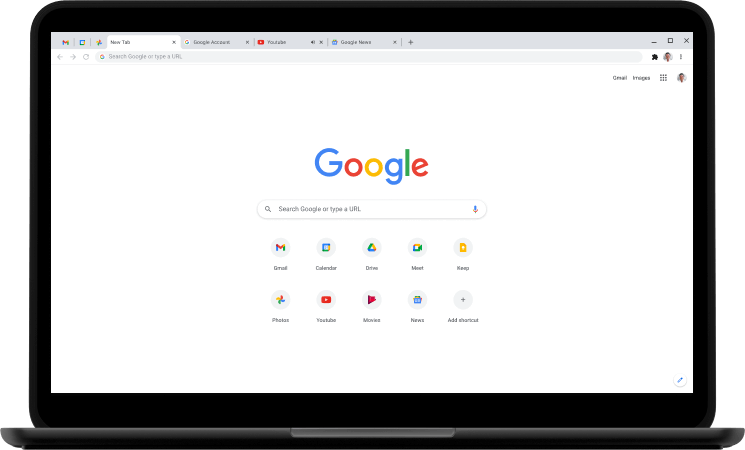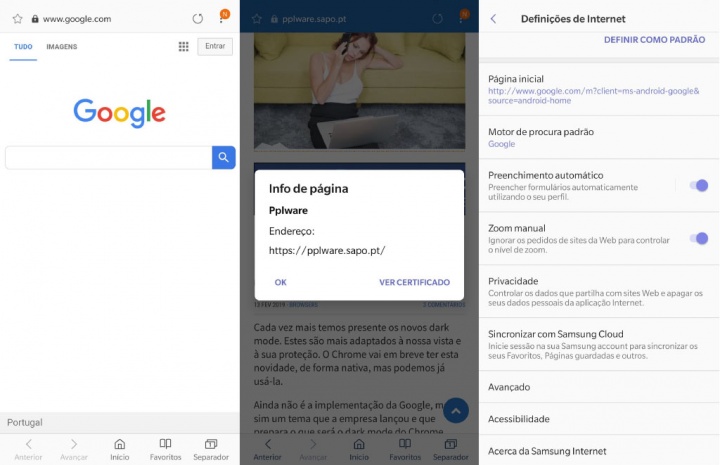Search the world's information, including webpages, images, videos and more. Google has many special features to help you find exactly what you're looking for.
Combined, Chrome and Firefox are the browsers of choice for most online users. Chrome accounts for more than 57 percent of web users, while Firefox is the browser of choice for more than 5 percent of web users.
Get more done with the new Google Chrome. A more simple, secure, and faster web browser than ever, with Google's smarts built-in. Google Chrome is a fast, free web browser. Before you download, you can check if Chrome supports your operating system and you have all the other system requirements. Google Chrome is one of the most popular web browsers and is available for. License: Free OS: Windows 7 Windows 8 Windows 10. Enterprise Support for Chrome Browser. Get best practices, troubleshoot potential issues, and avoid user downtime with Chrome Browser Enterprise Support. Available to organizations with over 1,000 users, this service offers 24/7 assistance from a team of Google experts. Contact sales to buy. Or visit our Help Center for support articles.
Although Chrome and Firefox are very popular, it doesn't mean you have to use them. Depending on your needs and browsing habits, there may very well be another browser that's a better fit.
Here are six alternative browsers worth considering.
1. Vivaldi
The Vivaldi browser is a dream for anyone who values customization. Vivaldi enables you to change tab positions, color choices, start page images and more. Users of the Opera browser will be familiar with Vivaldi's interface to some extent, since Opera's former CEO helms Vivaldi.
Other remarkable features include a built-in note-taking app, a secondary web page side panel and compatibility with extensions in the Chrome Web Store. Additionally, the browser has features that make navigation easy, such as saved tab sessions, tab stacks and mouse gestures.
However, Vivaldi can use a substantial amount of memory compared to Chrome or Firefox, with syncing passwords and settings also proving more difficult.
2. Torch
Media lovers may embrace the Torch browser, which places multimedia at the top of its priorities. Torch touts a 'Media Grabber' feature, enabling you to download media from the web with a single click.
Additionally, the browser touts a built-in torrent manager, Torch Torrent. Plus, impatient media viewers can watch videos before they finish downloading, courtesy of Torch Player.
Torch offers ample options for media lovers, though those who use the web for lighter experiences, like reading and sending emails, may find the browser's abundance of features overbearing. Some users also report stability issues when installing.
As Torch is based off of Chromium, it will look familiar to Chrome users and is compatible with extensions from the Chrome Web Store.
3. Epic Privacy Browser
If privacy and security are your top priorities when browsing the web, the Epic Privacy Browser may be the browser for you.
Touting itself as the world's only private and secure browser, the Epic Privacy Browser features a free built-in VPN, protecting your browsing history from data collectors and your ISP, even when you're on public Wi-Fi.
Other browsers have incognito modes, but Epic promises an even more secure experience, with the ability to block WebRTC calls and special fingerprinting techniques websites use to extract data.
As Epic is also based off of Chromium, it is compatible with extensions from the Chrome Web Store.
4. Ghost Browser
Ghost Browser presents an interesting approach for those seeking to separate their online browsing experiences. For example, you can have separate tabs for your work account and personal account, helping reduce distractions.
Tabbed projects are also available, which is very useful when you're working on a project and want to bring up all relevant bookmarks in a single click. Plus, Ghost Browser is a Chromium browser, so it's compatible with the Chrome Web Store.
Although Ghost Browser has a free version, its options limit users to three sessions at a time and do not include an incognito mode, so the $10- to $20-per-month cost for the upgrade may deter some users. Adobe cs4 for mac free download.
5. Midori
If you're seeking a lightweight browsing solution, Midori is worth strong consideration. The browser touts high speed, while still having the ability to handle web technologies like CSS 3 and HTML 5. Plus, Midori is compatible across a variety of Linux distributions.
Although Midori may lack the media options and customization of other browsers, it remains one of the fastest-responding and lightest-weight browsers available.
6. Opera Neon
Opera Neon strives to provide a peek at future browsing, with a futuristic and sharp interface complementing features like responsive tabs and improved visual functions, like a split-screen mode, video pop-out, a built-in snap-to-gallery tool and a newly built Omnibox.

The browser is still in its early stages, and is therefore more unstable, though its features offer an exciting look at the potential of future web browsers.
A multitude of browsers exist beyond Chrome and Firefox, all offering different emphases that may be a great fit for your browsing preferences.
Try these six as a starting point, or branch out and see what else you can find on your own.
Related Articles:
In case you weren't already aware, Google Home Hub has a built-in web browser. It's not a standalone app that's meant to be used by itself, but you can manually navigate around the web to just about anywhere. The existence of the browser isn't a new addition, but it is a 'hidden' feature that many might not yet know about.
While many missed it, Variety's Janko Rottgers noted the existence of the browser in his initial review of the Home Hub:
The Home Hub doesn't have a browser app. However, searching for an image often leads to results that then link to third-party websites like Wikipedia. Follow that link, and you are able to browse pretty much the entire online encyclopedia — with one notable exception: Home Hub doesn't offer any on-screen keyboard, and there's no option to dictate text input. This means that you won't be able to search for anything.
How to use the web browser on Google Home Hub
To pull up the browser, simply use the normal hotword 'OK Google' to search for a query that might give you a Wikipedia result. You can try 'Who is Nelson Mandela?' or 'What is a giraffe?'. For these queries (and many others) you should see a Wikipedia result with a tappable link near the bottom. From there, you can scroll around to read more.
While there's no way to manually navigate to a specific webpage, you can find your way to just about any site on the web by searching for a relevant Wikipedia entry and clicking the various links. For instance, if you wanted to navigate to W3schools.com, you can ask 'What is W3schools?' to pull up the Wikipedia entry and then click to the site.
It seems that, as of now, there's no method for text entry. That means, even if you do manage to get to a website like Netflix or another service that requires a log in of some kind, you won't be able to. As far as we can tell, there's no obvious workaround — there's no copy/paste function and connecting a keyboard to the service port does nothing.
Google Home Hub user agent
9to5Google reader Henry Lim managed to make his way to whatismybrowser.com, which shares the User Agent of the web browser and includes other device details. Apparently, the browser is defined as 'Chrome 70 on Android', specifically version 70.0.3538.47.
Google Web Browser Store

The browser is still in its early stages, and is therefore more unstable, though its features offer an exciting look at the potential of future web browsers.
A multitude of browsers exist beyond Chrome and Firefox, all offering different emphases that may be a great fit for your browsing preferences.
Try these six as a starting point, or branch out and see what else you can find on your own.
Related Articles:
In case you weren't already aware, Google Home Hub has a built-in web browser. It's not a standalone app that's meant to be used by itself, but you can manually navigate around the web to just about anywhere. The existence of the browser isn't a new addition, but it is a 'hidden' feature that many might not yet know about.
While many missed it, Variety's Janko Rottgers noted the existence of the browser in his initial review of the Home Hub:
The Home Hub doesn't have a browser app. However, searching for an image often leads to results that then link to third-party websites like Wikipedia. Follow that link, and you are able to browse pretty much the entire online encyclopedia — with one notable exception: Home Hub doesn't offer any on-screen keyboard, and there's no option to dictate text input. This means that you won't be able to search for anything.
How to use the web browser on Google Home Hub
To pull up the browser, simply use the normal hotword 'OK Google' to search for a query that might give you a Wikipedia result. You can try 'Who is Nelson Mandela?' or 'What is a giraffe?'. For these queries (and many others) you should see a Wikipedia result with a tappable link near the bottom. From there, you can scroll around to read more.
While there's no way to manually navigate to a specific webpage, you can find your way to just about any site on the web by searching for a relevant Wikipedia entry and clicking the various links. For instance, if you wanted to navigate to W3schools.com, you can ask 'What is W3schools?' to pull up the Wikipedia entry and then click to the site.
It seems that, as of now, there's no method for text entry. That means, even if you do manage to get to a website like Netflix or another service that requires a log in of some kind, you won't be able to. As far as we can tell, there's no obvious workaround — there's no copy/paste function and connecting a keyboard to the service port does nothing.
Google Home Hub user agent
9to5Google reader Henry Lim managed to make his way to whatismybrowser.com, which shares the User Agent of the web browser and includes other device details. Apparently, the browser is defined as 'Chrome 70 on Android', specifically version 70.0.3538.47.
Google Web Browser Store
Google Web Browser Default
Hmm pic.twitter.com/OdZA9RD1Zf
Google Web Browser Apk
— Henry Lim (@henrylim96) January 3, 2019
As we've been told previously, the actual operating system that's running on the Home Hub is a version of the 'Cast platform' that powers Chromecast and other Home devices, not Android Things, which powers other Smart Displays.
Google Browser Download
FTC: We use income earning auto affiliate links.More.

